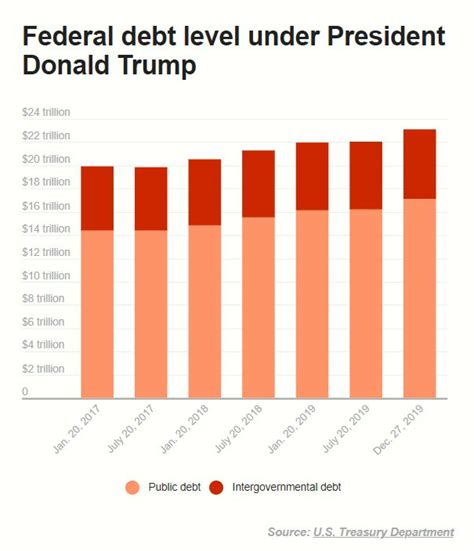How Much Did Trump Add to the National Debt? A Deep Dive into the Numbers
The national debt is a complex issue, often politicized and misunderstood. Understanding the increase during any president's term requires looking beyond simple headline figures and considering various economic factors. This post delves into the increase in the US national debt during Donald Trump's presidency, examining the contributing factors and offering context for a more informed perspective.
The Raw Numbers: A Significant Increase
During Donald Trump's four-year term (2017-2021), the US national debt increased substantially. While precise figures vary slightly depending on the source and accounting methods, the debt rose by trillions of dollars. This represents a significant percentage increase compared to previous administrations. However, simply stating the raw number isn't sufficient for a complete understanding.
Factors Influencing Debt Growth: Beyond Presidential Control
Attributing the entire debt increase solely to one president is an oversimplification. Numerous factors influence the national debt, many operating independently of any single administration's direct control. These include:
- Economic Recessions: Unexpected economic downturns can significantly impact tax revenues and increase government spending on social programs like unemployment benefits, leading to a rise in the debt. The COVID-19 pandemic, which occurred during Trump's final year, is a prime example.
- Tax Cuts: The Tax Cuts and Jobs Act of 2017, enacted during Trump's presidency, significantly reduced corporate and individual income tax rates. While intended to stimulate economic growth, this also reduced government revenue, contributing to the debt increase.
- Increased Government Spending: Spending on defense, infrastructure, and other government programs all impact the national debt. Examining the specifics of spending increases during this period provides important context.
- Interest Payments: A growing national debt necessitates higher interest payments, further increasing the debt burden over time. This is a compounding effect that needs to be considered.
Understanding the Context: More Than Just Numbers
Analyzing the debt increase requires a broader perspective than just the raw dollar amount. We must consider:
- GDP Growth: Comparing the debt increase to the overall growth of the Gross Domestic Product (GDP) offers a more nuanced view. A rapidly growing economy can absorb a larger debt more easily.
- Global Economic Conditions: Global economic events, such as trade wars or international crises, can impact the US economy and influence the national debt.
- Long-term Trends: The national debt has been increasing for decades, making it crucial to view any administration's impact within this long-term context.
Conclusion: A Multifaceted Issue
The increase in the US national debt during the Trump administration was substantial. However, attributing the entire increase to his policies alone ignores the complex interplay of economic factors, both domestic and international. A thorough understanding requires analyzing the contributing factors, comparing it to GDP growth, and considering the long-term trends of the national debt. This provides a more balanced and informed perspective on this critical issue. Further research into specific economic data from reputable sources is crucial for a comprehensive analysis.
